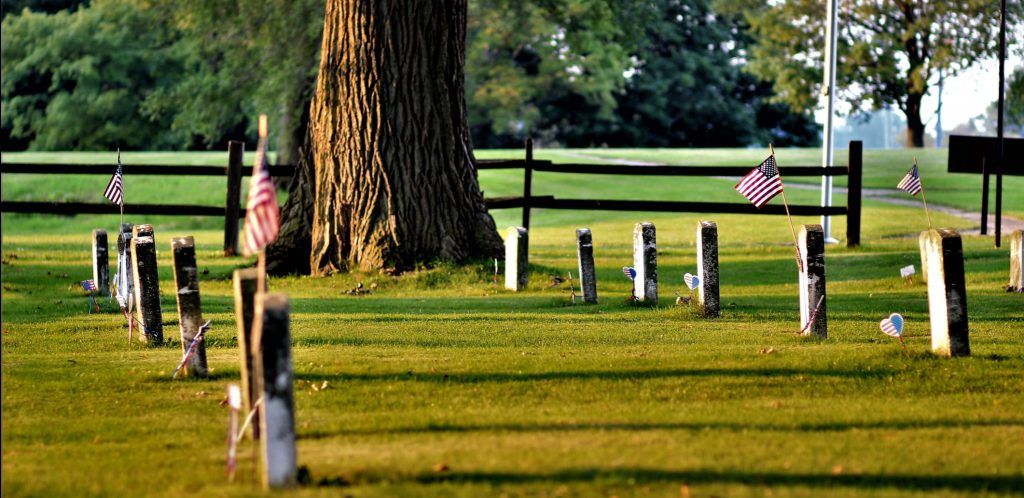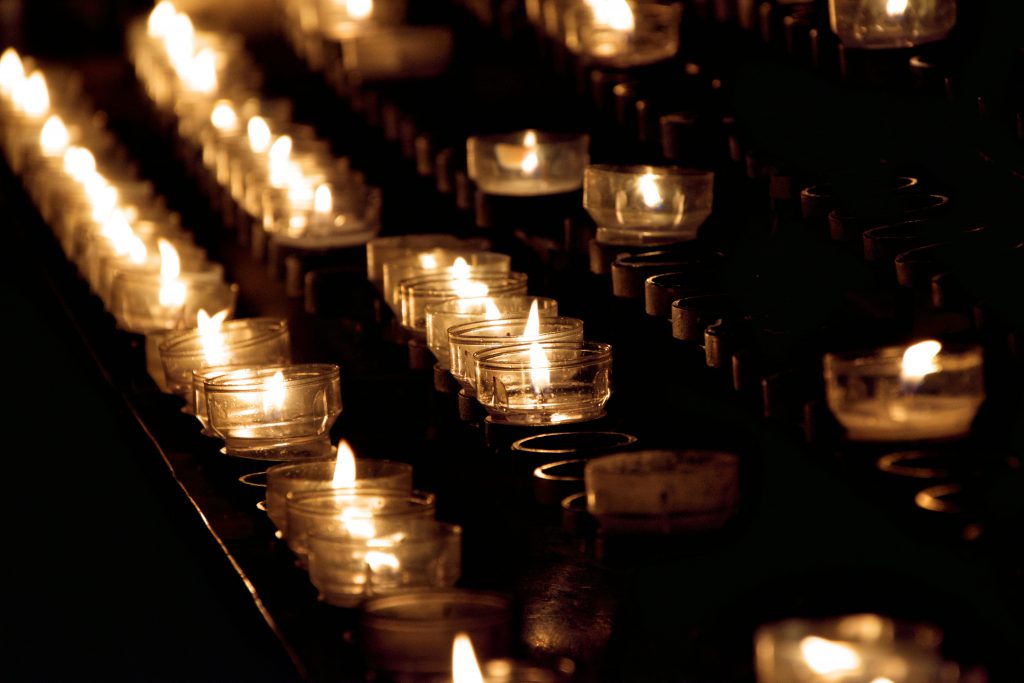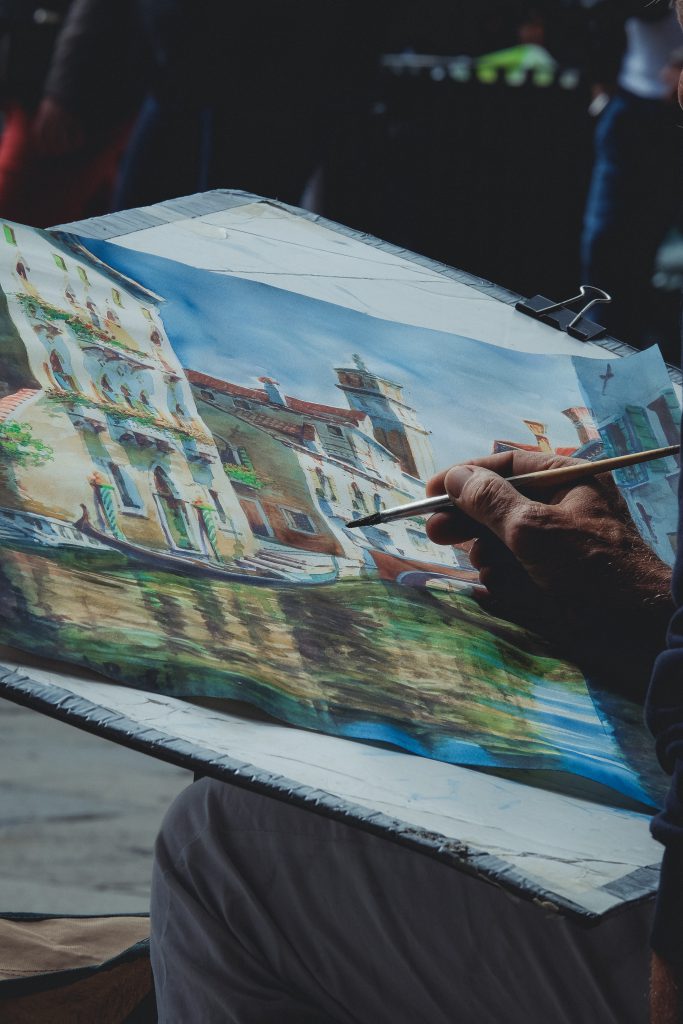
I can’t speak for everyone’s experiences, but all of the funerals that I have ever been to have been really uplifting and inspiring. When friends and family members give talks during the funeral service, the messages are filled with memories, accolades, praise, beauty, accomplishments, and honor for the deceased person. And I think that’s great. A funeral is definitely an appropriate place to focus on celebrating the life of the deceased person and speaking of our love for them.
But there is another side as well. What was once a real, breathing, flawed person who had strengths and weaknesses, somehow turns into someone that was “always kind”, “never spoke ill of anyone,” “a friend to all,” “never thinking of him/herself, and always serving others,” etc.
And I don’t know about you, but these types of messages are really inspiring, and at the same time a bit depressing. I come away feeling uplifted, yet inadequate. I try to take what I can from these inspiring individuals that have now left this mortal life, and let their example push me to be better myself.
But at the same time, I try to remember that this person still lived a real life. They had real challenges, real weaknesses, real fears, etc. Some of the uplifting stories about their lives came from them overcoming these challenges, weaknesses, and fears. And that’s amazing and awe-inspiring. But I also have to remember that we are just getting one part of the story – the result.

And on top of that, these results are probably embellished for the sake of honoring the deceased. If the deceased were there to speak at his/her own funeral (and I wouldn’t be surprised if he/she is often there giggling to him/herself about the praises that are being spoken of them), I bet he/she would be the first one to stand up and say “uhh…. people… you’re giving me waaaaayyyy too much credit here. I most definitely am not “always kind”, “never speaking ill of anyone,” “a friend to all,” “never thinking of myself, and always serving others,” etc. I have challenges, weaknesses, and fears just like the rest of you. Sure, I’ve learned some things during my time on earth, but I am still far from perfect. Now, carry on… what other nice things do you have to say about me?” 🙂
After I die, I want my posterity to remember me as someone who had a lot of positive characteristics. Someone who was loving, kind, honest, respectful, service oriented, peaceful, funny, wise, spiritual, charitable, faithful, positive, uplifting, etc. And perhaps I will have actually attained some of these characteristics by the time I die in 60 years (+/- some).
But I don’t want my posterity to come away from my funeral feeling kind of depressed about their own current state of their lives. I want them to get the whole picture – the ups and downs, the steps forward and backward, the successes and failures, the process – not just the end result. And especially not exaggerated results.
This is one of the reasons why I am so passionate about journal keeping and why I feel like it is so important.
Keeping a daily journal helps me to present myself (to my future self, and to my posterity) as a real person. I don’t censor my journal writing. I know that some people are afraid to write their real, raw, negative thoughts and feelings. They may even feel like they should burn or destroy their journals so that no one else ever reads them. If that’s your style, then go for it. At least you are getting some of the benefit from journal writing – the part that is therapeutic for yourself in the moment.
That’s not my personal style though.
I want my posterity to be able to read my journals and see that I wasn’t always perfect. I want them to see that I made mistakes. I want them to see that I had weaknesses. I want them to see that I experienced real emotions – even the negative ones. Without this side of the coin, the other one can’t really exist. It just feels like a made up fairytale. And I don’t want to turn into a made up, perfect character when I’m dead. I still want to be real.
I hope that my posterity will read my journals and actually learn from my life experiences. That learning can’t really happen if they don’t see the whole picture though. And in order for them to see the whole picture decades from now, I have to paint whole picture now – in the present. A painting happens over time, with each individual brush stroke. The finished product doesn’t just pop out of thin air. It’s a process. I want my posterity to see that process as they read about my own life experiences through my journal entries.

Recording this process, the individual brush strokes, requires writing in real time. I know that some people think that they will just write their personal histories later – when they’re old. They think they’ll have more time then. And that’s definitely better than nothing. But I see a couple of issues with that plan.
One, what if you die before you get around to writing down your history? And two, the details get awfully fuzzy the further you get from the actual experience. As I’ve written about before, I feel like this is especially true when it comes to recording spiritual experiences. The fuzzier the details, the more likely your story is going to turn you more into a fairytale made-up person, and less of a real person. This is why I feel that it is important to have a consistent journaling habit. Writing in real time captures the details. It captures the process. It captures the doubt that then turned into faith, the weaknesses that slowly transformed into strengths. There are things that I have written down in the past and I didn’t even realize that they would be useful later, or that I would look back and see how much I had grown in that area.

Even though it will be nice to leave this earth and hear people sing my praises at my funeral, I don’t want my posterity to leave my funeral feeling uplifted and inspired, but also depressed and inadequate. I don’t want to leave a legacy of perceived perfection (perceived, because for sure I won’t be perfect in actuality). I want to leave a legacy of growth, of learning, of getting up when I got knocked down, of progress, of persistence, of endurance. And I feel like that legacy will be better kept alive through the efforts that I am making now to record my real life experiences in real time.


Love how you know the truth is so much more beautiful and useful.